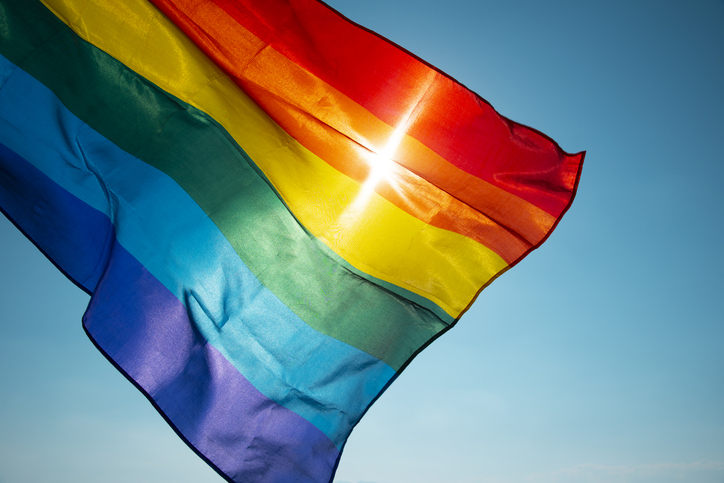This year has been a devastating one when it comes to violence against transgender people in the United States, with a record-setting number of killings recorded.
But in honor of the Transgender Day of Remembrance, a new report has found that at least 350 trans lives have been lost through violence across the globe between September 2019 and September 2020.
The report notes that even the high number of deaths they recorded through news reports and local advocacy groups is an approximation due to trans victims who are often misgendered or outright ignored by local or national governments around the world.
Brazil, Mexico and the United States topped the list with relatively high numbers compared to other countries. There were at least 152 trans deaths in Brazil while Mexico had 57 killings and the United States had at least 28, a record for the country, as Blavity previously
reported.
Transrespect Versus Transphobia, the organization behind the report, has been recording the figures since 2008 and said the total number of deaths for 2020 was 6% higher than last year. An astounding 98% of those killed globally were trans women or transfeminine people while nearly 80% of those killed in the United States were people of color. Of the 11 trans people killed in Europe this year, half were migrants.
The organization released an entire packet of data they collected showing the numbers from each country and specific information collected on each death. Since 2008, the group has collected information on 3,664 trans deaths in 75 countries.
"Behind the statistical representation of numbers and percentages, there are people whose lives we value and who we, as societies, failed to protect. Aggregated data indicates that Black and migrant trans women of color are more vulnerable and frequently targeted. Social stigma and criminalization of sex work expose trans sex workers to abuse, exploitation, and violence," the organization said in a statement attached to their report.
"At the same time, those groups are repeatedly silenced and underrepresented within our communities and societies. Although COVID-19 affects us all, social differences and inequalities are deepened by the pandemic, emphasizing gaps in lack of legislation and systemic protection of trans and gender-diverse people," the group added.
Brazil accounts for more than 40% of all the trans killings around the globe this year while 82% took place somewhere in Central or South America.
Very little data was available for much of Africa and Asia, but similar to this year's list, Brazil, Mexico and the United States led all countries in trans deaths since 2008.
Trans Day Of Remembrance is held each year on November 20 and according to GLAAD, the event was started by transgender advocate Gwendolyn Ann Smith.
"Transgender Day of Remembrance seeks to highlight the losses we face due to anti-transgender bigotry and violence. I am no stranger to the need to fight for our rights, and the right to simply exist is first and foremost. With so many seeking to erase transgender people — sometimes in the most brutal ways possible — it is vitally important that those we lose are remembered, and that we continue to fight for justice," Smith said, according to GLAAD.
The tragic, record-setting figures for the United States have continued to grow throughout the year. The death of Aerrion Burnett in September was the country's 27th violent deaths of a transgender or gender non-conforming person this year, according to The Human Rights Campaign. The National Center for Transgender Equality said in August the figure was even higher at 28 deaths this year.
Since Burnett's death in September, Mia Green, Michelle Michellyn Ramos Vargas, Felycya Harris, Brooklyn Deshuna, Sara Blackwood and Angel Unique have all been killed, according to the Human Rights Campaign.
"Despite the fact that we are living through the coronavirus pandemic, transgender and gender non-conforming people are also still facing an epidemic of violence. We are also living in an extremely vitriolic period, where hate, prejudice, racism and transphobia are fueled by many in power," said Tori Cooper, Human Rights Campaign director of community engagement for the Transgender Justice Initiative, after Unique's death.
"This is contributing to a rise in animosity and an increase in fatal violence against trans and gender non-conforming people. We need our allies to take action to support us today and every day," Cooper added.
The author of the Transrespect Versus Transphobia global report, Lukas Berredo, echoed those remarks and told Forbes that COVID-19 was having a devastating effect on the trans community.
“In times of crises, those living in the margins suffer the most. The impact of COVID-19 is being felt most severely by trans people who are homeless, sex workers, disabled, migrants, refugees, asylum seekers, poor, and/or elderly. Those communities are not only affected by the virus itself, but also by health care systems and providers, as well as by the socioeconomic and political impact of the pandemic," Berredo said.
“At the same time, we are noticing some governments using the pandemic as an excuse for violating human rights, with signs of a wide range of political and legal rollbacks leading towards more systemic discrimination against trans people in the world. Stigma and discrimination and a wide range of violence, overlaps with other axis of oppression prevalent in society, such as racism, sexism, misogyny, xenophobia, and anti-sex worker sentiment and discrimination,” Berredo added.
